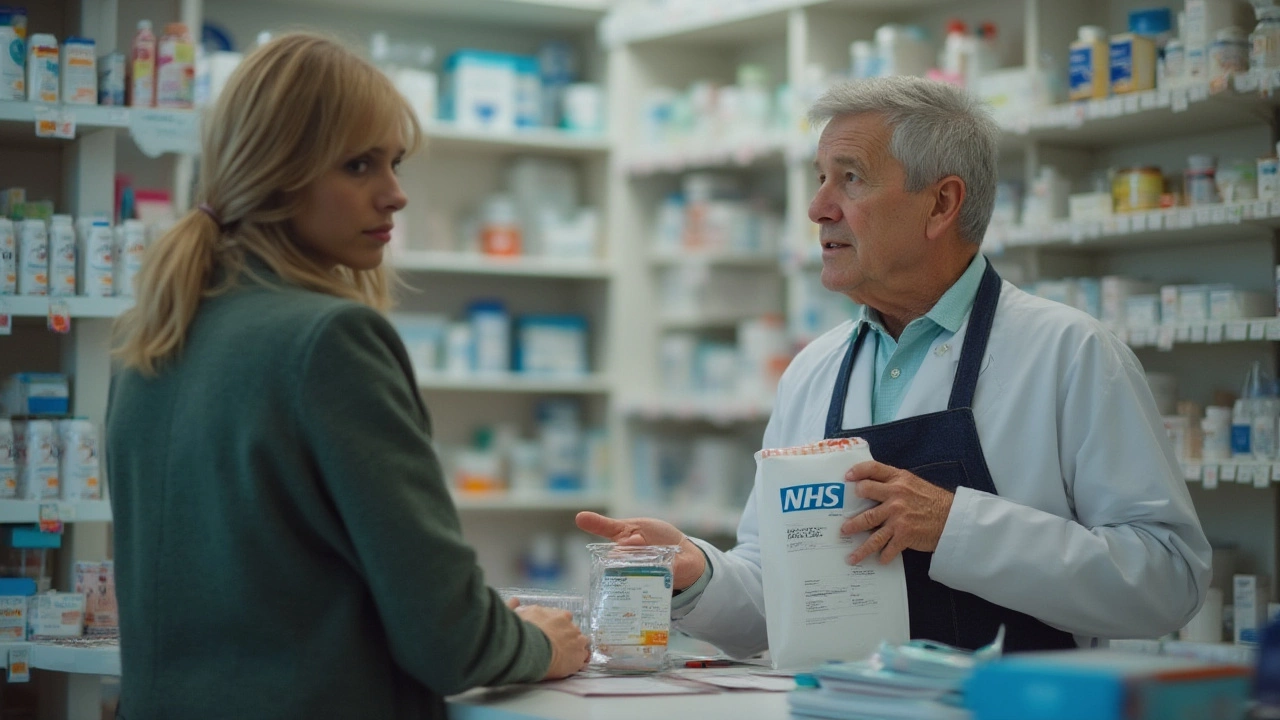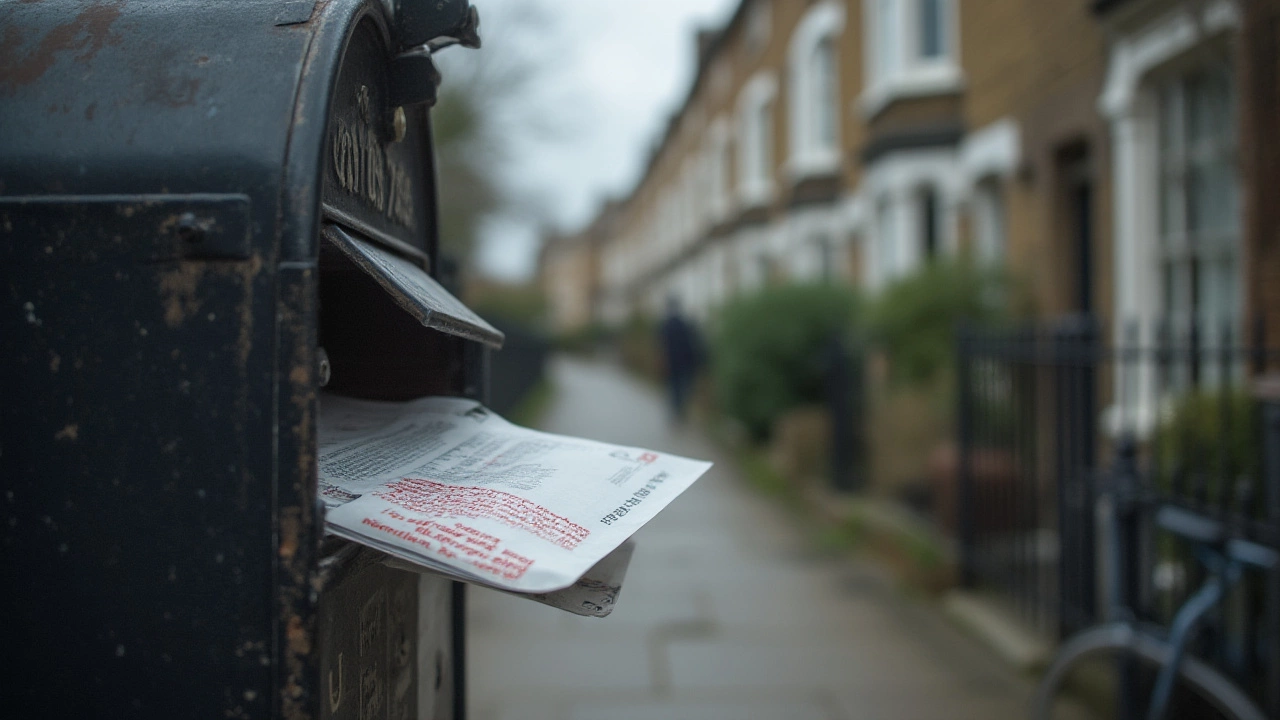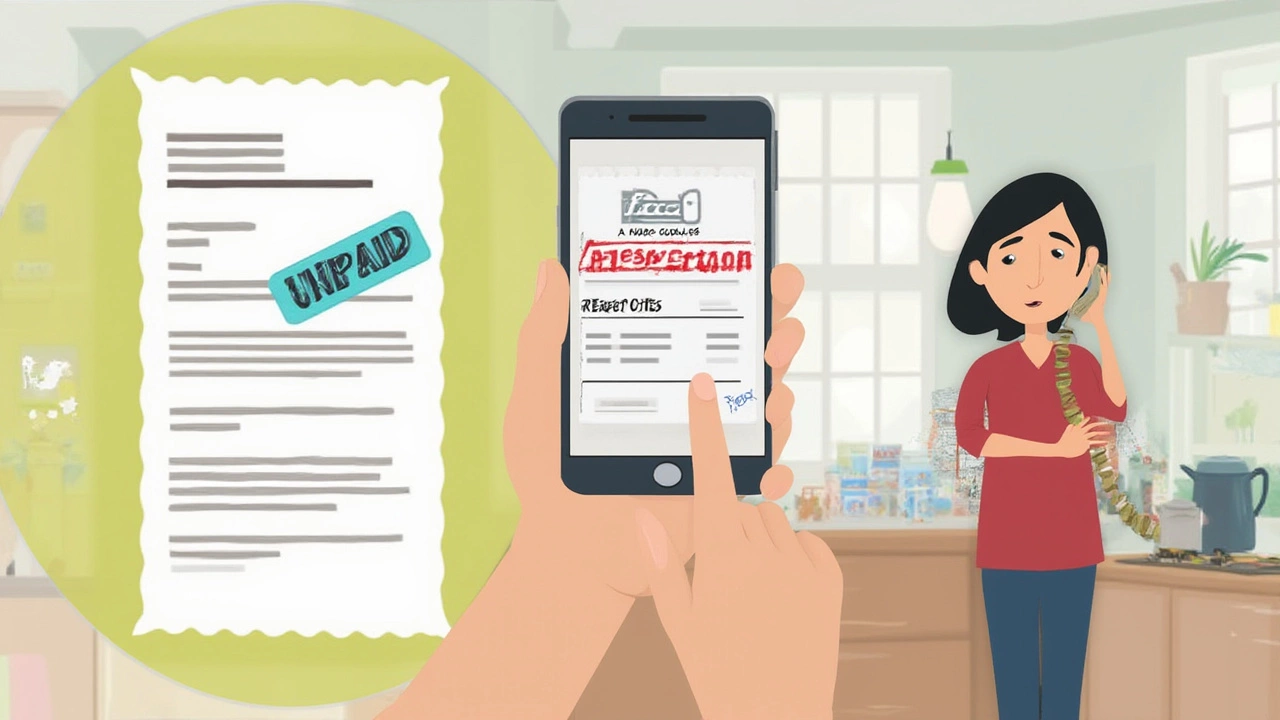 Jul, 5 2025
Jul, 5 2025
Imagine this: you’re sick, maybe your allergies are flaring up or you’ve just left the doctor’s office with a stack of prescriptions. You stroll into the pharmacy, hand over your slip, prices flash up on the register, and your stomach drops. It’s more than you expected—or can afford. You walk out empty-handed, or maybe the pharmacy lets you take the medicine but asks you to pay next time. What now? Does the police show up at your door? Will your health suffer? Can you get in hot water with insurance? A lot of people wonder about what really happens behind the counter—and on your records—if you don’t pay for that medication.
This isn’t some wild, rare situation. In the UK, nearly 1 in 10 adults has admitted to not paying prescription charges in full at least once, either because they simply couldn’t afford it or they thought they were exempt. And in the US, about 1 in 4 people admit they don’t fill prescriptions at all due to cost. The system’s full of confusing bills, inconsistent insurance, and rules that honestly don’t make much sense.
Immediate Consequences at the Pharmacy
Forget nightmares about instant arrest. Most pharmacists won’t call the cops but they do have to follow a set routine when someone can’t (or won’t) pay at pick-up. Usually, if you haven’t paid yet, you won’t walk out with your medicine unless the pharmacy is in a system that allows payment plans or “owe” slips (rare in the US, more common in some parts of the UK or other EU countries). If you don’t pay upfront, the prescription and the medicine will typically be returned to stock if not picked up, unless there are special circumstances like emergency programs or charity support.
But let’s say you do take the medicine home without paying. Pharmacies can and do call you, send bills, and remind you to pay your balance. In the US, chain pharmacies such as CVS and Walgreens will send a series of reminder texts, emails, or letters. In the UK, if you wrongly claim exemption and don’t pay, the NHS Business Services Authority may send letters demanding payment later along with a potential penalty fee of up to £100, plus the original prescription charge.
Most pharmacies don’t pursue criminal charges for non-payment unless there’s evidence of fraud (like falsifying identity or exemptions). However, unpaid bills could go to collections if ignored for long enough. That means your credit score can take a hit, making it harder to buy a car, house, or even get some jobs. In the US, medical debt is one of the top reasons for personal bankruptcies, and even small unpaid pharmacy bills can snowball—according to Experian, around $88 billion of outstanding US medical bills appear on credit reports.
Here’s a quick look at what might happen over time with an unpaid prescription:
| Timeline | What Happens |
|---|---|
| At Pick-Up | Pharmacist asks for payment; medicine withheld without payment in most cases. |
| First Month | Bills or payment reminders sent; sometimes a small grace period. |
| 1–3 Months | Escalation letters sent; in the UK, penalty charge notices may be issued. |
| 3+ Months | Account may be sent to collections; possible credit score impact in the US. |
| Ongoing | Repeat offenses: further pharmacy service may be denied, records flagged. |
Tip: Always talk with the pharmacist. They’re used to people struggling to pay—it’s awkward, but they might know about discounts, coupons, or uninsured patient programs you’ve never heard about. In some cases, when hardship is real, pharmacies have charity funds or can direct you to local clinics that help with cost.

Risks for Your Health and Insurance
The scariest downside of not paying for a prescription? You don’t get the medicine—and your health takes the hit. Skipping doses or not picking up vital drugs (think asthma inhalers, insulin, blood pressure tablets) can lead to emergency room visits or even hospital stays. One CDC report from 2024 said that half of people who “rationed” medicine due to cost wound up sicker, and over 20% landed in the ER within a year. Those are brutal odds.
Missed prescriptions can drag out illnesses and increase your risk for complications. If you’re skipping antibiotics, it’s not just about feeling lousy longer—improperly finished courses mean bacteria can become resistant, making infections a lot harder to treat for everyone in the future. That’s why doctors and pharmacists take medication adherence so seriously.
Now, insurance gets tricky too. In the US, if you let your medical debts go to collections, your insurer might not care—but you’ll pay with your credit. However, if your insurance requires frequent prescription refills to cover a chronic disease, constant lapses might trigger reviews from your health plan. They might start denying cover for related health issues, arguing “non-compliance.” Sometimes, if you’re on a managed care plan or a specific assistance program, skipping prescriptions can get you booted from the program altogether. In Canada, provincial plans also keep tabs: if someone is caught gaming the subsidy system, benefits can be suspended or clawed back.
In the NHS, declaring a false exemption to avoid a prescription charge is a civil (not criminal) offense—unless it’s repeated or you use fake documents. Those penalty fees can add up, and being caught repeatedly gaming the system might affect other NHS benefits or get you flagged in future audits. No one enjoys paperwork from government authorities.
Fact: About one quarter of all health insurance plans now run “medication adherence” analytics in the background. That means if you skip too many refills and end up in the ER, the insurer knows and may challenge future claims—especially for chronic diseases like diabetes or asthma.
Bottom line: The risk isn’t someone knocking at your door, but your body is the one paying first.

Tips, Workarounds, and What To Do If You Can’t Pay
Okay, so the price tag makes your eyes water, or you straight-up can’t pay this time. Don’t panic; there are a few smart moves you can try before just walking out empty-handed.
- Prescription payment assistance: Many pharmacies, especially big chains, have discount programs or loyalty cards. Ask outright if there are any applicable coupons or if they know of manufacturer rebates. It’s awkward, but you’d be shocked at what’s out there (think $4 generic lists at major grocers).
- Shop around: In the US, pharmacies aren’t allowed to hide drug prices anymore. There are legit apps (like GoodRx or SingleCare) where you can compare prices at different stores, and sometimes pay less as a “cash patient” than through your insurance. If you’re outside the US, clinic-run pharmacies sometimes offer lower prices.
- Talk to your doctor: If you can’t afford your medicine, ask the prescriber to recommend a cheaper generic brand, or see if the shape, dose, or frequency can be adjusted. Sometimes there’s a “therapeutic alternative” that costs way less.
- Apply for benefits or hardship help: If your income is low or you’re on benefits, you might qualify for prescription charge waivers or medical cost support. In the UK, check out the NHS Low Income Scheme. In the US, Medicaid or state-specific programs might step in. Don’t wait for collection calls.
- Emergency/charity clinics: Some urban clinics and nonprofits run free or almost-free dispensaries. You’ll need proof of need, but these are not just for the homeless—students, the retired, or those between jobs use them too.
- Don’t fake info: Declaring false exemptions or dodging bills intentionally could come back to bite you if you’re caught. The penalties only make things worse.
- Don’t ignore collection letters: If your debt does get sent out, respond quickly. Many collection agencies will work with you and set up a payment plan or settle for a reduced amount. Ignoring them won’t make the bill disappear.
- Check community group resources: Religious organizations, charities, or civic groups often have small funds dedicated to helping people cover basic medical needs. They won’t judge—and often help way faster than big bureaucratic offices.
Fact: In 2023, the average out-of-pocket cost for a single prescription in the US was $13.52, but some drugs—especially for rare diseases or advanced chronic conditions—ran into the thousands monthly. Going without isn’t just a budgeting issue; it can spiral fast if your condition worsens.
So, the next time that prescription bill feels insurmountable, know you’ve got options, but also real responsibilities. You aren’t alone in this—millions are facing the same pharmacy checkout sticker shock. Be honest with your pharmacist, check for programs, and tackle those debts before they grow claws. Avoid fake exemption risks, and never gamble with your health if you can avoid it. Medicine is supposed to make you better, not bankrupt you or make you sick from skipping doses just to avoid a bill.
